Being a caregiver is a noble task that comes with challenges. Amongst many challenges, adult incontinence stands out. It is a prevalent and deeply personal issue that affects adults and seniors.
If you are a caregiver of someone with incontinence, you know how overwhelming it can be to manage the symptoms while maintaining dignity and respect for the person you care for.
As a caregiver, your role is invaluable in managing your loved one’s physical and emotional needs. Incontinence is a common condition among adults and can be distressing for both the person experiencing it and the caregiver. We explore how caregivers manage adult incontinence and diaper use, its common causes, and the types of adult diapers available. We will also discuss the importance of maintaining dignity and offer lifestyle changes that can help alleviate symptoms.
However we will discuss resources and support available for caregivers dealing with adult incontinence. Lastly, we will also provide tips for helping your loved one manage their daily routine and where to find resources and support as a caregiver.
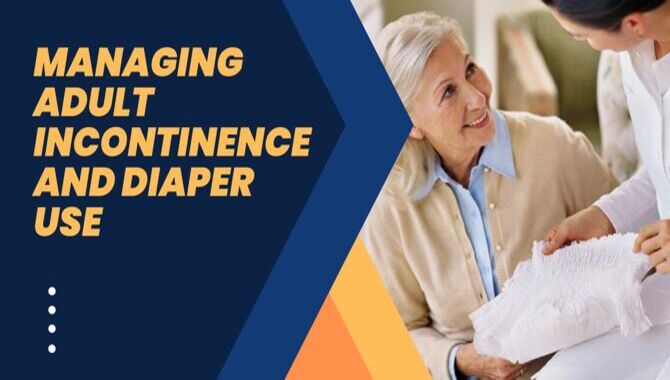
The Role Of Caregiving In Managing Adult Incontinence And Diaper Use: In Detail
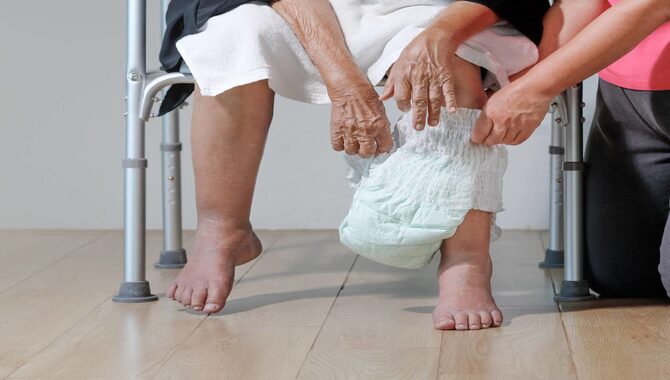
The role of caregiving in managing adult incontinence is crucial. It requires the acceptance of the condition, its treatment, and its proper management. Incontinence doctors, such as gynecologists and urologists, must be consulted for advice and medication. Caretakers, especially family members of elders living with incontinence, assume responsibility for assisting with passing urine, changing adult diapers, and maintaining their morale.
Various types of incontinence, such as adolescent, fecal, or urinary, necessitate diverse products and measures. Caregivers who care for elders with incontinence must be patient, empathetic, and prepared for all the challenges and hassles associated with incontinence. They should encourage the elderly, giving them the dignity and respect they deserve regarding healthcare.
How Do Caregivers Manage Incontinence?
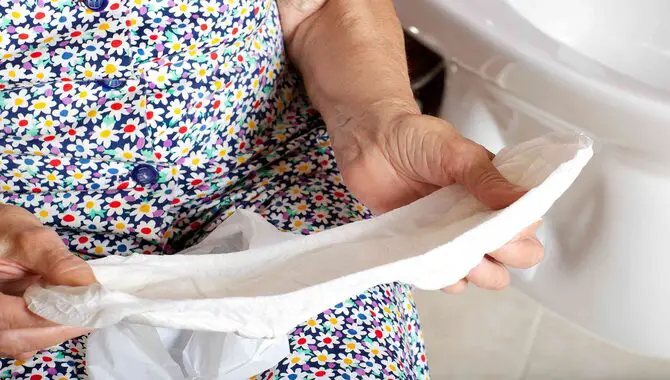
Managing incontinence for aging parents can be a task that requires gentle handling, patience, and compassion. One of the primary steps for managing incontinence is to report the issue to doctors, who can then evaluate the causes and recommend proper treatment. Addressing incontinence issues can significantly reduce caregiver stress and improve patients’ self-esteem and overall quality of life.
Nurses and caregivers must regularly assess patients’ continence, which can mitigate potential risks and improve their outcomes. In addition, nursing assistants must lead patients, advocating and defining their care plan beyond the routine use of adult diapers. Proper incontinence management greatly impacts the patient’s overall health and ensures the highest possible standards of care. Adult diaper tips are also available to soothe the process in between check-ups.
What Are Some Common Causes Of Adult Incontinence?
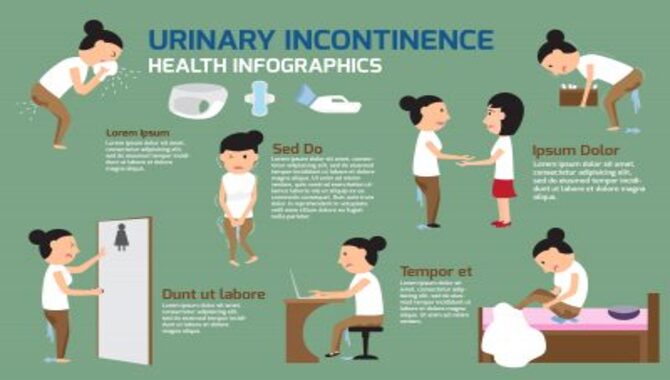
Adult incontinence is the uncontrollable loss of urine or bowel movements, which several factors can cause. Medical causes of incontinence include urinary tract infections or side effects of certain medications. It is essential to consult with a gynecologist or urologist for diagnosis and not to ignore incontinence as “laziness.”
Common types of incontinence are stress or urge incontinence, adaptive incontinence occurring after a stroke, and stool incontinence involves the loss of bowel control. For caregivers, managing incontinence can cause a heavy workload, but it is essential to provide support while caring for the affected individual.
What Are Some Types Of Adult Diapers, And How Do They Differ In Effectiveness?
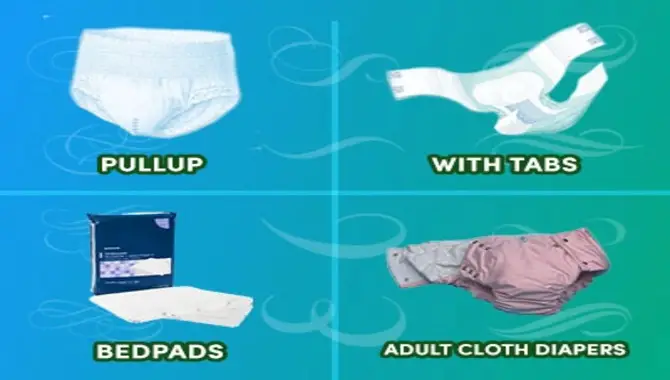
Different types of adult diapers in the Market differ based on their effectiveness, the user’s needs, and other factors. Waterproof adult diapers can prevent urine from leaking and are ideal for those facing severe incontinence issues.
Some adult diapers offer high absorbency and can hold urine for about 8 hours, providing comfort to the user. While changing an adult diaper, it’s essential to have the necessary supplies, including gloves, wipes, a cleanser, barrier cream, and a garbage can or diaper pail. Reusable adult diapers are washable and can be an eco-friendly and cost-effective option.
Because Market provides a wide variety of premium underwear that is sleek, breathable, and highly absorbent, ensuring the comfort and safety of the user. It’s essential to choose the right type of adult diaper based on the user’s needs and situation, to ensure the user’s safety, comfort, and dignity.
How Can A Caregiver Help Their Loved One Maintain Their Dignity While Dealing With Adult Incontinence?
Having a loved one dealing with adult incontinence can be a difficult situation. Caregivers must approach the matter sensitively to ensure quality care while maintaining the dignity of their loved ones. One way to uphold this is by reporting incontinence problems to doctors for evaluation and treatment. Properly managing incontinence can reduce caregiver stress and provide quality time with loved ones.
Caregivers must undertake tasks such as diaper changing and maintaining morale, which can be challenging. However, seeking support for uncomfortable feelings and looking for professional help can help them care for their loved ones better. Being patient and prepared can help caregivers manage the frustrations of caring for incontinent loved ones. Ultimately, caregivers must be ready to show empathy, compassion, and respect toward their loved ones, regardless of their current condition.
Are There Any Lifestyle Changes That Can Help Alleviate Symptoms Of Adult Incontinence?

There are a few lifestyle changes that can help alleviate the symptoms of adult incontinence. Firstly, drinking an adequate amount of fluids and avoiding alcohol and caffeine can help reduce the frequency of incontinence. Additionally, consuming fiber-rich foods and maintaining a healthy weight can help improve bladder control.
It’s important to note that incontinence can result from treatable conditions such as urinary tract infections, which you can easily treat with antibiotics. In the meantime, adult diapers can help caregivers manage incontinence-related tasks and improve the self-esteem of those affected. Diaper use can enable normal activities and reduce worries about accidents.
Caregivers should be mindful of the impact of incontinence on the daily routines of those in need and should consult a gynecologist or urologist for proper assessment and treatment. Lastly, it is important to note that incontinence is not solely a physical issue- it can also have a profound emotional impact. Therefore, understanding and empathy are essential in providing the best care possible.
Where Can I Find Resources And Support As A Caregiver For Someone With Incontinence?
Being a caregiver for someone with incontinence can be physically and mentally challenging. Fortunately, there are resources and support available to help caregivers. In-person or online support groups and healthcare professionals can provide caregivers with knowledge, advice, and emotional support.
Additionally, searching online can help to find affordable incontinence supplies, and placement may be the best choice for long-term care. Remember that incontinence may not be an emergency but should be reported to a healthcare professional. The doctor can evaluate the causes and recommend treatment approaches.
Gynecologists and urologists are specialists most familiar with incontinence. Caring for someone with incontinence can be overwhelming, and caregivers experience mental stress from constantly worrying about the patient’s condition. Remember, seeking help and support is crucial to prevent burnout and ensure the best care for the caregiver and the patient.
What Are Some Tips For Helping A Loved One With Incontinence Manage Their Daily Routine?

One of the most important aspects of managing incontinence is ensuring that a loved one can continue their daily routines as they normally would. This can be a challenging task, but there are several things that you can do to help ease the burden.
First, make sure to provide them with enough privacy and quiet time when they are trying to manage their incontinence. This will allow them to feel less self-conscious and more comfortable expressing their needs. Another key aspect of helping a loved one with incontinence is providing support and information.
Providing written resources and speaking with them about available options can aid in their decision-making and understanding of treatment options. Finally, be proactive by offering your loved one various physical activity opportunities, such as walking or utilizing gym or home exercise equipment. These activities can help increase their physical activity level and reduce their chances of developing additional health conditions such as chronic back pain or arthritis.
Conclusion
As a caregiver, you are crucial in managing adult incontinence and diaper use. It may be difficult to discuss and address, but it’s important to remember that this common issue affects millions of adults worldwide. Being a caregiver for someone with incontinence can be challenging and demanding, especially if it is new to you.
However, taking care of someone in their time of need and helping them manage their incontinence effectively can make a big difference in their quality of life. It’s important to remember that incontinence is a common condition and not something to be ashamed of.
Your support and empathy can go a long way in making your loved one feel more comfortable and confident in their daily life. Every step counts, from managing symptoms to finding the right products and resources.
Frequently Asked Questions:
How Do You Assist And Support Patients With Incontinence?
There are several ways that you can assist and support patients with incontinence. Some key strategies include providing privacy and quiet time, providing written resources and information, being proactive in your approach to helping them manage their daily routine, and encouraging physical activity.
What Are Some Of The Key Considerations When Caring With Someone Who Has Incontinence?
Some key considerations when caring for someone with incontinence include providing privacy and quiet time, supporting their daily routine, helping them manage their care, and encouraging physical activity.
How To Care For Elderly Patients With Urinary Incontinence?
You can take several steps to care for elderly patients with urinary incontinence. Some key steps include providing privacy and quiet time, encouraging physical activity, supporting their daily routine, providing written resources and information, and being proactive in your approach to helping them manage their care.
Do In-Home Caregivers Change Diapers?
In-home caregivers may change adult diapers for loved ones with urinary incontinence. Changing the diapers frequently (approximately 5-8 times per day) is important to avoid skin problems. Diapers for bowel incontinence are designed for comfort and are hypoallergenic. It is also important to change adult diapers tactfully to maintain the patient’s dignity.
What Are Three 3 Things To Consider When Caring For A Person With Functional Urinary Incontinence?
When caring for a person with functional urinary incontinence, there are several things to consider. Management options include a fiber-rich diet, adequate fluid intake, pelvic floor exercises, toileting programs, and incontinence aid products.
Incontinence can affect people of all ages, and if there is an increase in urgency or frequency, it’s important to seek professional help. Caregivers should also watch out for lack of urine output and swollen meatus and maintain hygiene.
